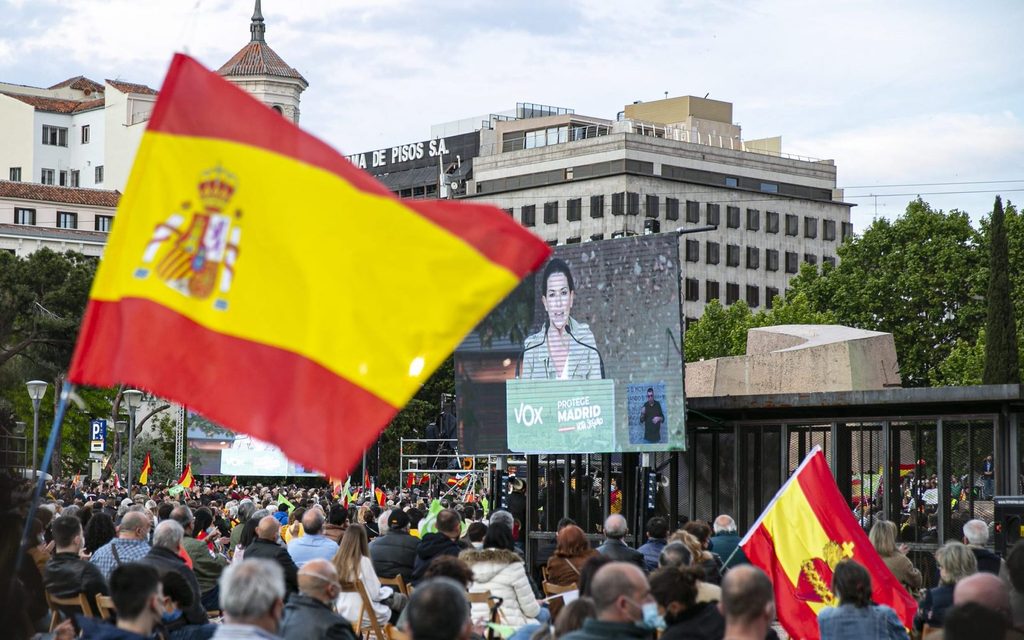Spain will hold elections on Sunday after incumbent Prime Minister Pedro Sánchez announced early parliamentary elections following losses by his center-left party PSOE in the regional and municipal elections last May.
The outcome of the elections is uncertain but is likely to impact the Spanish EU-presidency. Spain took over the EU-Presidency from Sweden on 1 July for the next six months. It faces a heavy workload, with no end in sight to Russia’s war of aggression against Ukraine, the migration crisis at its own borders and unfinished files concerning the European Green Deal and animal welfare legislation.
Normally, an incoming EU-Presidency would accept the invitation of the International Press Association (API) in Brussels to present its programme and priorities but this did not happen this time. Instead, API invited three Brussels-based Spanish journalists on Thursday to explain and discuss the elections in their home country.
After winning the 2019 general elections, the Spanish Socialist Workers' Party (PSOE) led the Spanish government in a coalition with the left-wing party, Podemos. In the elections on 28 May, held in the majority of the regions (autonomous communities) and in all municipalities, the political map of Spain changed.
While the results varied by regions, the conservative center-right Popular Party (PP) increased its share of the votes by often more than 10 %, gaining altogether around 35 % of the total votes, with a clear lead before PSOE. On the left wing of the political spectrum, Podemos (UP) lost votes and has joined a new leftist alliance under the name Sumar.
The Popular Party took control of some the regions where it governs alone or with the support of the far-right VOX party. The latter party, though still lagging behind other far-right parties in the EU member states, increased its number of votes and hovers around 12 – 13 % on average in the regions.
In the election on Sunday, PP under Alberto Núñez Feijóo will challenge PSOE under Pedro Sánchez but it is hardly likely that any of them can form a majority government without the support of smaller parties – PP with the support of VOX and PSOE with the support of Sumar and other smaller parties to its left. A party or coalition of parties needs at least 176 seats of the 350 seats in the parliament.
In Spain, opinion polls are not allowed during the last week before the elections. Some of the last polls show PP with up to 35 % of the votes and PP with only around 28 %, while VOX and Sumar each are supported by 14 % of the electorate. The error rate, however, can change the cards. Another factor is the voter turnout which is expected to be lower than usual because of the timing of the elections.
A lengthy government formation could hamper Spain's EU presidency and cannot be excluded according to Elena Sánchez Nocolás, Brussels correspondent for EUobserver. She painted three scenarios: a majority government formed by PP alone (not likely), a coalition government formed by PP and VOX, and a coalition formed by PSOE and other leftist parties.
“It can take time until the end of the year to form the government,” she said. “In that case Spain will be more focused on domestic issues than running the EU-Presidency.” Irrespective of government, the priorities already set for the EU presidency ("Europe, closer") will not change because much of the work is technical and not politicized.
Max Griera, correspondent for EURACTIV, was more concerned about the role VOX might play in a PP-led government. Spain would in that case join the club of EU countries relying on far-right parties. It could set a precedent for the elections to the European Parliament due to take place in June 2024, disrupting the current power balance in the Parliament.

API vice-president at a hearing with three Brussels-based Spanish journalists, 20 July
The inclusion of VOX in the government could affect Spain’s position on the European Green Deal, explained Nacho Alarcón Aquilera, Brussels correspondent for El Confidencial, an on-line newspaper with a liberal political orientation. VOX has wide support in rural areas but policy changes will depend on which ministry posts the party will get. Changes in rule of law issues and family policy are likely to happen.
In the absence of a common political programme before the elections, the parties in a coalition government will apparently run the ministries as they like.
As regards migration policy, he does not expect any big changes. “We have already a right-wing government in Spain when it comes to migration policy.” The Spanish model of working together with undemocratic countries in North Africa in preventing undocumented migrants from reaching Europe’s shores was recently adopted by the EU in its partnership agreement with Tunisia.
Overall, all three journalists agreed that a change in government after the elections would not change much in Spain. New governments in Spain do not roll back the policies of the former governments. If PP will return to power, people will get four years of calm. The only element which could disturb the calm would be the inclusion of VOX in the government.
M. Apelblat
The Brussels Times

